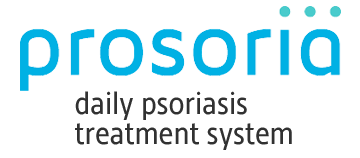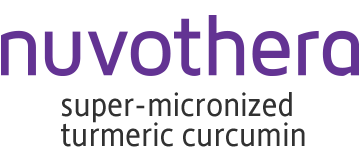What Is Psoriasis?
22 Oct 18

Psoriasis is an inflammatory immune-mediated disease characterized by the speeding up of the lifecycle of your skin cells. This causes a rapid buildup of cells on your skin’s surface, resulting in scaly patches that may be itchy, red, and painful.
Living with and managing your psoriasis comes down to knowing what type you have, avoiding your flare-up triggers, and finding the right psoriasis treatment. Read on to learn more about psoriasis and how it can be diagnosed and treated.
Different Types of Psoriasis
You may be wondering, “What does psoriasis look like?” Psoriasis appears in five main forms that are characterized by different physical symptoms:
Plaque Psoriasis
The most common form of psoriasis, plaque psoriasis, appears as dry, red skin lesions that are raised and covered in a buildup of silvery white dead skin cells. These lesions are known as plaques and may appear anywhere on the body but are most common on the knees, scalp, elbow, and lower back.
Guttate
This form of psoriasis mainly affects children and young adults. Guttate psoriasis lesions appear as small dots around the legs, arms, trunk, and scalp. Guttate is usually triggered by strep throat or other bacterial infections.
Inverse
Inverse psoriasis appears as smooth, shiny lesions in body folds, like in the groin, under your arms, and behind your knees.
Pustular
Pustular is a more severe psoriasis type characterized by pus-filled blisters surrounded by red, tender skin. These blisters usually form on the hands or feet. Pustular psoriasis may also come with a fever, chills, itching, and diarrhea.
Erythrodermic
Erythrodermic psoriasis can result in a red, peeling rash that covers the entire body, leading to intense itching, peeling, or burning. Although relatively rare, this type of psoriasis can be life-threatening.
What Causes Psoriasis?
Researchers still aren’t sure exactly what causes psoriasis, though there is an understanding that genetics and the immune system contribute to its development. The onset of psoriasis can happen at any age, though it most often develops between the ages of 15 and 35. In rare cases, some infants will develop psoriasis.
Generally, psoriasis is triggered by something that causes skin cells to grow at an abnormal rate, resulting in lesions or blisters. Some common triggers include:
- Viral, fungal, or bacterial infections, including strep throat or skin infections
- Smoking
- Stress
- Cuts, scrapes, bug bites, severe sunburn, or other injuries to the skin
- Vitamin D deficiency
- Certain prescription medications
So, is psoriasis contagious? It’s important to understand that psoriasis is NOT contagious. That means you can’t get it from other people, nor can you spread it to others. Lesions, blisters, and rashes caused by psoriasis are not infectious.
How is Psoriasis Diagnosed?
Diagnosing psoriasis generally does not involve any special tools or blood tests. Your dermatologist can diagnose the skin disease by checking your medical history and performing a physical examination of your scalp, skin, and nails. About a third of people with psoriasis also have a family member who also has psoriasis as well.
Psoriasis may often look like a different skin condition, like a simple skin irritation, allergic reaction, or eczema. To confirm that you have psoriasis, your doctor may take a biopsy (a small sample of your skin), which can be examined under a microscope. Skin affected by psoriasis appears thicker and more inflamed than skin affected by eczema.
Treating Psoriasis
The good news is that there is a wide range of treatments for psoriasis available. However, every type of treatment comes with pros and cons. It’s also important to understand that everyone is different. A treatment that works for someone else, may not work for you and vice versa.
Topical Treatments
Topical treatments are often the first line of defense for anyone with psoriasis. These are applied directly to the skin and can help to soothe mild to moderate forms of psoriasis. Topical prescription creams come in a variety of forms, including:
- Corticosteroids
- Retinoids
- Vitamin D
- Anthralin
Phototherapy
Phototherapy, or light therapy, involves regularly exposing your skin to artificial or natural ultraviolet light. In its simplest form, this involves exposing your skin to natural sunlight for controlled amounts of time. UV rays help to slow down cell turnover while reducing inflammation and scaling. However, excessive UV exposure can damage your skin. exacerbate existing symptoms, and increase your risk to skin cancer.
Systemics
Systemics are comprised of oral and injected medications, which are often prescribed for more severe forms of psoriasis. However, some of these medications may come with serious side effects. They may only be used in conjunction with other treatment methods. Common oral and injected systemic medications include:
- Cyclosporine
- Methotrexate
- Apremilast
- Injectable Biologics
- Retinoids
Biologics
Biologics are among the newest types of injected systemic treatments for severe psoriasis today. Biologics are made from proteins produced by live human and animal cells. Since proteins cannot be taken orally, biologics are injected, helping to block parts of the immune system that targets the inflammatory process that drives psoriasis. This treatment targets certain types of immune cells, helping to control the psoriasis process.
Non-Prescription Treatments
Among the many prescription methods and treatments for psoriasis, there are non-prescription treatments that can provide relief as well.
Coal tar is a by-product of the production of coal gas and coke from coal. It is a dark, thick liquid that has both medical and industrial uses. Coal tar can be applied directly to the affected area. Many psoriasis sufferers find relief when using coal tar as a supplement to another treatment like phototherapy.
Salicylic acid is also another popular non-prescription treatment for psoriasis. Salicylic acid is considered a peeling agent and works by causing the skin to shed its outer layer. This treatment can be very beneficial for psoriasis sufferers, as it helps to soften and calm inflammatory skin.
Using moisturizers designed to help with psoriasis can help to relieve symptoms for psoriasis sufferers as well. Many lotions on the market even include ingredients like salicylic acid, coal tar, and anti-oxidants to soften and calm the skin, while simultaneously preventing further flare-ups.
Why Prosoria Works
Most of the non-prescription treatments are single products containing coal tar, salicylic acid or are simple moisturizers. Prosoria is the first once-psoriasis treatment system. The reason Prosoria works so well for psoriasis sufferers is because of our combination treatment system that uses individual products that target specific symptoms.
Our daily psoriasis treatment system treats, softens, and restores the appearance of psoriatic skin. This effective treatment system works to relieve psoriasis symptoms including scaling, flaking, itching, redness, and irritation. You can feel confident knowing that Prosoria is effective at relieving your symptoms, while also helping to prevent recurrence.
Managing Psoriasis at Home
Although there is not currently a cure for psoriasis, self-help measures can help you manage symptoms, increase your comfort, and bring you general peace of mind. Some effective home remedies include:
- Daily baths – Taking short daily baths helps to calm your skin and remove dead skin cells. Avoid bathing in hot water or using harsh, scented soaps, both of which can irritate your skin and make psoriasis symptoms worse. Use non-soap cleansers that do not strip your skin of natural oils.
- Keep your skin moist – Use a heavy lotion or cream after bathing to keep your skin hydrated. During colder, dryer months, moisturize your skin multiple times a day.
- Avoid triggers – During particularly bad flare-ups, do your best to stay away from triggers like cigarette smoke, alcohol, and excessive sun exposure.
Dealing with psoriasis can be difficult, emotionally and physically. Support groups give you an open forum to talk about your emotions as well as a group of like-minded people to lean on when times tough. It’s completely fine to feel sad, frustrated, and annoyed, but remember that psoriasis is not a measure of your character. With the right psoriasis treatment, you can manage your condition and live your life to its fullest.
We hope you have a better understanding of what psoriasis is, and how it can be diagnosed and treated. To start on your path to healthier skin and better managing your psoriasis, talk with a professional at Prosoria today!
Sources:
- https://www.livescience.com/27115-skin-facts-diseases-conditions.html
- https://www.mayoclinic.org/diseases-conditions/psoriasis/symptoms-causes/syc-20355840
- https://www.psoriasis.org/about-psoriasis
- https://www.psoriasis.org/about-psoriasis/treatments

